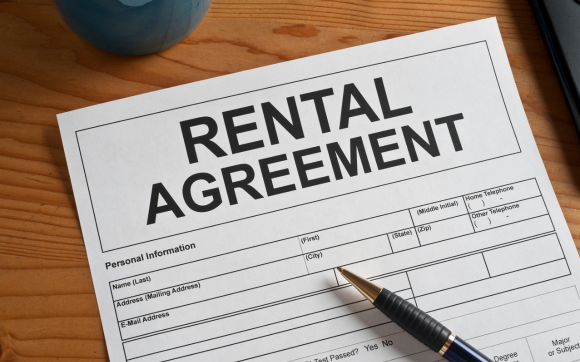Start Your Search Early
Starting your search for rental properties early is a crucial strategy, especially in high-cost areas where demand often outstrips supply. Here’s a more in-depth look at why and how to implement this approach effectively:
Why Start Early?
- Increased Options: Beginning your hunt 2-3 months in advance opens up a broader range of available properties. This time frame allows you to explore different neighborhoods, types of homes, and price points without the pressure of immediate necessity.
- Market Understanding: An early start allows you to understand the rental market dynamics in your desired area. You’ll get a sense of average rental prices, the competitiveness of the market, and any seasonal trends that might affect availability and pricing.
- Relationship Building: Early engagement with property management groups or landlords can put you on their radar for upcoming vacancies. These relationships could give you a head start on new listings before they hit the open market.
How to Start Your Search Early

- Research and Identify Desired Areas: Identify neighborhoods or areas that align with your lifestyle, commute, and budgetary needs. Online resources, community forums, and local news outlets can provide valuable insights.
- Connect with Property Management Companies: Contact local property management groups in your targeted areas. Introduce yourself and express your interest in future listings. Ask about their application process, upcoming availabilities, and any pre-approval requirements.
- Utilize Online Tools and Alerts: Leverage rental websites and set up alerts for your specific criteria in the desired locations. These tools can automatically notify you of listings that match your preferences.
- Plan Visits and Open Houses: Visit the neighborhoods you’re interested in. Attending open houses or arranging viewings for available properties can provide a feel for the available areas and types of homes.
- Prepare Documentation: Have your rental application documentation ready to go. This includes references, proof of income, and any other required paperwork. Being prepared can expedite the application process when you find the right property.
Additional Tips
- Broaden Your Criteria: Be open to different types of housing options. For instance, consider townhouses or shared living arrangements if you’re solely looking at apartments.
- Network for Leads: Utilize your personal and professional networks. Sometimes, the best leads on rentals come from friends, family, or colleagues.
- Stay Organized: Keep track of properties you’ve inquired about and follow up regularly. An organized approach ensures you take advantage of potential opportunities.
Starting your search early can significantly improve your chances of finding an affordable rental in a high-cost area. By being proactive, well-informed, and organized, you position yourself to secure a rental that meets your needs and budget.
Leverage Social Media

Leveraging social media to find long-term rental properties can be a highly effective strategy, especially in high-demand areas. Here’s how to make the most of platforms like Facebook Groups and Nextdoor:
Why Use Social Media for Rental Searches?
- Access to Non-Listed Properties: Many landlords and property managers use social media to advertise rentals that may not be listed on traditional real estate websites.
- Real-Time Updates: Social media platforms often provide timely updates on available rentals.
- Community Insights: These platforms can offer valuable insights into the neighborhood from current residents.
How to Leverage Social Media for Rentals
- Join Local Community Groups: On Facebook, join local Community and housing groups. These can include groups specific to neighborhoods, cities, or interest groups related to housing.
- Utilize Nextdoor: Nextdoor is a neighborhood-focused platform where locals often post about available rentals or upcoming vacancies.
- Post Your Inquiry: Don’t hesitate to post your own inquiry detailing your desire. Be specific about your needs, such as property type, budget, and desired location.
- Network with Locals: Engage with local community members. Sometimes, the best leads come from word-of-mouth recommendations.
- Stay Active and Responsive: Regularly check these platforms and respond promptly to potential leads.
- Exercise Caution: While social media can be a great resource, always verify the authenticity of listings and never share sensitive personal information online.
Tips for Success
- Create a Compelling Profile: Ensure your social media profile is complete and presents you as a trustworthy and reliable potential tenant.
- Use Filters and Search Tools: Many groups allow you to filter posts or use specific keywords to narrow down rental listings.
- Set Up Notifications: Set up notifications for groups and pages that regularly post rental listings to alert you when new posts are made.
- Be Polite and Professional: When interacting on these platforms, communicate politely and professionally as you effectively introduce yourself to potential landlords.
Potential Pitfalls to Avoid
- Scams and Fraud: Be wary of scams. If a deal seems too good to be true, it probably is. Always verify the
- Scams and Fraud: Be wary of scams. If a deal seems too good to be true, it probably is. Always verify the authenticity of a listing before proceeding. This might involve doing a bit of research on the property and the person who posted the listing. Never provide sensitive personal information or make payments before confirming the legitimacy of the listing.
- Personal Safety: When arranging to view a property, consider safety precautions. Bring a friend or family member, and inform others about your plans. Always meet in public spaces if possible and during daylight hours.
- Privacy Concerns: Be mindful of your privacy when interacting on social media. Avoid sharing personal details like your address, workplace, or financial information.
By effectively leveraging social media, you can uncover hidden gems in the rental market that are unavailable through traditional channels. This approach requires diligence, caution, and networking savvy, but it can be a valuable tool in your search for the perfect long-term rental property.
Walk the Neighborhood

Exploring neighborhoods on foot can be a surprisingly effective way to find rental properties, especially in high-demand areas. This method, often overlooked in the digital age, offers several advantages:
Benefits of Walking the Neighborhood
1. Discover Unadvertised Rentals: Many landlords still prefer traditional methods like ‘for rent’ signs in windows or yards. These properties might not be listed online【57†source】.
2. Get a Feel for the Community: Walking around gives you a real sense of the neighborhood’s vibe, safety, amenities, and Community, which can only sometimes be gauged online.
3. Immediate Contact: If you spot a ‘for rent’ sign, you can often call the landlord immediately, possibly getting ahead of other interested renters.
How to Effectively Walk the Neighborhood
1. Choose the Right Time: Late morning or early afternoon during weekends can be ideal. This timing increases your chances of seeing ‘for rent’ signs and encountering locals.
2. Prepare for Interaction: Have a list of questions ready if you meet landlords or tenants. This could include questions about rent, utilities, neighborhood safety, and lease terms.
3. Dress Appropriately: Wear comfortable clothing and shoes, and be prepared for varying weather conditions.
4. Bring Necessary Materials: Carry a notebook and pen to jot down addresses and contact information. Having your phone handy for quick calls or to take pictures is also helpful.
5. Talk to Locals: Engage with people in the neighborhood. They can offer insights about living in the area and may know about available rentals.
6. Respect Privacy: While it’s good to be observant, remember to respect current residents’ privacy.
Additional Tips
– Expand Your Search Area: If your preferred neighborhood doesn’t yield results, try expanding your search to adjacent areas.
– Visit Multiple Times: Visit the neighborhood at different times and days to understand the area comprehensively.
– Note the Details: Pay attention to the condition of the buildings and streets, indicating how well the area is maintained.
Walking the neighborhood for rental properties combines traditional methods with a personal touch. It’s a proactive approach that can lead to finding hidden gems and offers a real-world view of potential living spaces.
Negotiate with Landlords

Negotiating with landlords can be an effective strategy to secure a better rental rate, mainly when properties have been on the market for longer. Here are key points and strategies to consider when engaging in rental negotiations:
Understanding the Negotiation Landscape
- Landlord Flexibility: Individual landlords might be more open to negotiation than larger property management companies. They might have more leeway in adjusting rental rates or lease terms.
- Market Dynamics: Properties vacant for an extended period are more likely to have negotiable rates. Landlords are often more willing to compromise to fill the property rather than let it sit unoccupied.
How to Negotiate Effectively
- Do Your Homework: Research the local rental market to understand average prices for similar properties. This information will give you a solid foundation for negotiation.
- Build a Rapport: A positive relationship with the landlord can make them more receptive to negotiations. Approach the conversation in a friendly and respectful manner.
- Highlight Your Strengths as a Tenant: If you have an excellent rental history, stable income, and can commit to a longer lease, bring these points up. Landlords value reliable tenants.
- Be Reasonable in Your Offer: While aiming for a lower rate is essential, your offer should still be within a reasonable range of the asking price.
- Consider Non-Price Terms: Sometimes landlords are firm on price but may be willing to negotiate other terms, such as the length of the lease, the inclusion of utilities, or parking and pet fees.
- Prepare to Compromise: Be ready to meet the landlord halfway. Negotiation is a two-way process; showing flexibility can lead to a mutually beneficial agreement.
Tips for Successful Negotiations
- Timing Matters: Try to negotiate towards the end of the month, when landlords might be more eager to fill vacancies for the upcoming month.
- In-Person Meetings: Negotiate in person. This allows for better communication and can be more persuasive than phone or email discussions.
- Written Agreements: Once you reach an agreement, ensure all negotiated terms are included in the lease agreement to avoid future misunderstandings.
Following these strategies can enhance your chances of successfully negotiating with landlords. Remember, the goal is to reach an agreement that benefits you and the landlord, creating a positive foundation for your tenancy.
Finding a Trustworthy Roommate

Finding a trustworthy roommate is crucial for managing living expenses, particularly in high-cost rental markets. Here’s how to approach this effectively:
Importance of a Trustworthy Roommate
- Shared Costs: A roommate can significantly reduce your individual expenses by sharing rent and utilities.
- Companionship: Besides financial benefits, a good roommate can provide social interaction and companionship.
Finding the Right Roommate
- Use Your Network: Start by asking friends, family, and colleagues. A recommendation from someone you trust can be invaluable.
- Online Platforms: Websites like Craigslist, Roommates.com, and social media groups can help find roommates, but exercise caution and vet candidates thoroughly.
- Interview Potential Roommates: Discuss lifestyle, habits, and expectations in-depth. You must be compatible regarding schedules, cleanliness, noise tolerance, and other living preferences.
- Check References: If you’re considering someone you don’t know, ask for references from previous roommates or landlords.
Drafting a Roommate Agreement
- Define Responsibilities: The agreement should clearly outline each person’s responsibilities, including rent payments, utility bills, and household duties.
- Lease Terms: Make sure the deal aligns with your lease terms, especially regarding subletting policies.
- Set Boundaries: Include guidelines for guests, noise levels, and shared space usage.
- Plan for Disagreements: Establish a process for resolving conflicts.
- Exit Strategy: Have a clause for the procedure if one roommate decides to move out.
Protecting Both Parties
- Legal Considerations: While a roommate agreement isn’t legal, it can help resolve disputes and set clear expectations.
- Privacy and Respect: Respecting each other’s privacy and belongings is crucial for a harmonious living arrangement.
By carefully selecting a roommate and establishing clear agreements, you can enjoy the financial and social benefits of shared living while minimizing potential conflicts.
Using Local Affordable Housing Authorities

Utilizing local affordable housing authorities and non-profit housing services can be valuable for individuals seeking affordable housing options. These entities offer various programs and services to assist in finding affordable rental housing, especially for low-income people.
- Housing Choice Voucher (Section 8): This federal program is implemented by local and state public housing agencies. It provides a subsidy that tenants can use at any privately owned rental unit that meets program guidelines. The voucher covers a significant part of the rent, with the tenant typically paying about 30% of their income towards rent and utilities. It’s important to note that the demand for these vouchers often exceeds the supply, resulting in long waiting lists or lotteries for new applicants.
- Subsidized Rental Housing: In this program, the government assists in paying apartment owners to offer reduced rents to low-income tenants. To apply for this type of housing, you must contact your nearest public housing agency and check your eligibility, which usually involves income limits based on the area’s median income.
- Public Housing: This option is for affordable housing owned and operated by local public housing agencies. Similar to the Section 8 program, residents in public housing contribute a portion of their income towards rent and utilities, with the amount varying based on the agency’s policies. Public housing is often designated for extremely low-income families, older people, and persons with disabilities.
- Other Assistance Programs: Besides these main programs, specialized assistance programs exist for certain groups, such as veterans or families needing unification. These programs also work based on tenant-based rental assistance, providing subsidies and support in line with the families’ needs.
When seeking assistance from these housing authorities, starting the process early is essential due to high demand and limited availability. Understanding each program’s eligibility requirements and application process is crucial for a successful search. Contacting your local housing authority or visiting their website can provide detailed information about your area and needs.
Referral Services or Brokers Using apartment referral services or brokers can be a helpful strategy in your search for a rental property, especially in competitive markets. These professionals act as intermediaries between landlords/property management companies and potential renters, and they offer various benefits but also come with potential downsides.
Benefits of Using a Broker

- Market Knowledge: Brokers are familiar with the local rental market and can help narrow down options based on your preferences, such as location, size, amenities, and rent.
- Access to Unlisted Apartments: They often know about available units before they’re listed online, providing you with a broader selection of options.
- Assistance with Short-Term Rentals: Brokers can be beneficial if you’re looking for temporary housing or short-term rentals.
- Help with Long-Distance Rentals: If you’re moving from afar, a broker’s local knowledge can be invaluable in helping you find a suitable rental.
- Speed and Convenience: Brokers can significantly speed up the rental process, which is beneficial if you’re in a hurry to find a place.
Drawbacks of Using a Broker
- Cost: In some cities, brokers charge a fee for their services, which can be a significant expense. This fee is typically a percentage of the annual rent paid by the tenant. However, in some cases, the landlord may cover the broker’s fee.
- Potential for Too Many Clients: Some brokers handle numerous clients simultaneously, which might affect the level of attention and service you receive.
- Risk of Misleading Practices: There’s a risk of encountering deceptive tactics like “bait and switch,” where an advertised “no-fee” apartment later incurs a fee.
Tips for Working with Brokers
- Vet the Broker: Conduct thorough research and ensure that the broker has a good reputation and a record of satisfied clients.
- Understand the Fee Structure: Clarify the cost involved and who pays the broker’s fee.
- Communicate Your Needs Clearly: The more specific you are about your requirements, the better a broker can assist you.
In summary, while brokers can provide valuable assistance in finding a rental property, especially in large and competitive cities, you must be aware of the potential costs and choose a reputable professional.
- Grocery Budgeting
Grocery budgeting is crucial to managing finances, especially in high-cost living areas where daily expenses can quickly add up. Here are some strategies to effectively manage grocery expenses:
Strategies for Grocery Budgeting

- Meal Planning: Planning your weekly meals can help avoid impulse buys and ensure you purchase only what you need. This approach helps minimize waste and save money.
- Stick to a Grocery List: Make a list before heading to the store and strictly stick to it. This helps avoid unnecessary purchases and keeps you focused on items you need.
- Avoid Shopping When Hungry: Shopping on an empty stomach often leads to buying more food than necessary, including impulse purchases of snack foods or ready-to-eat items.
- Compare Prices and Shop Smart: Look for sales, use coupons, and compare prices between stores. Buying generic or store brands instead of name brands can also save money.
- Buy in Bulk: For non-perishable items or products you use regularly, buying in bulk can be more cost-effective.
- Use Leftovers Creatively: Plan to use leftovers in future meals, which can reduce the need to cook every day and minimize food waste.
- Limit Dining Out: Cooking at home is generally cheaper than eating out. Reducing the frequency of dining at restaurants can significantly cut down overall food expenses.
- Utilize Community Resources: In some high-cost areas, there are community gardens, food co-ops, or bulk-buying clubs that can offer more affordable options for fresh produce and other items.
Additional Tips
- Seasonal Purchases: Buy fruits and vegetables that are in season; they are usually cheaper and fresher.
- Monitor Food Waste: Track what gets thrown away to better tailor your shopping habits.
- Frozen over Fresh: Sometimes, frozen fruits and vegetables can be cheaper than fresh ones and are just as nutritious.
By implementing these strategies, you can effectively manage your grocery budget, ensuring you spend wisely and get the most out of your food purchases. This is particularly important in areas where the cost of living is high, and every dollar saved can make a significant difference.
Cutting Unnecessary Expenses

To effectively manage grocery expenses, especially in high-cost living areas, several strategies can be employed:
- Meal Planning and Grocery Lists: Plan your meals and create a grocery list. This ensures you buy only what you need and helps avoid impulse purchases.
- Avoid Extra Shopping Trips: Limiting your grocery store visits can help you stick to your budget and prevent repeated purchases of the same items.
- Utilize Coupons and Money-Saving Apps: Whether digital or paper, Coupons can offer significant savings. Money-saving apps can also help you find the best deals for you.
- Cook and Buy in Bulk: Cooking in larger batches can save time and money. Similarly, buying in bulk often reduces the cost per unit.
- Grow Your Own Produce: Starting a small garden for high-cost items like herbs or certain vegetables can reduce your grocery bill.
- Reevaluate Unnecessary Items: Assess your shopping habits and cut out luxury or non-essential items that inflate your grocery budget.
- Consider Generic Brands: Often, generic or store brands offer the same quality as name brands but at a lower price.
- Limit Dining Out: Reducing the frequency of eating out can lead to substantial savings, as home-cooked meals are generally cheaper.
- Be Energy Efficient at Home: Lowering the temperature on your water heater and using energy-efficient appliances can reduce utility bills, allowing you to allocate more funds to groceries.
- Negotiate Service Bills: Contact your service providers by phone and Internet to negotiate lower rates, freeing up more of your budget for groceries.
By implementing these strategies, you can manage your grocery expenses effectively, ensuring you get the most value out of your purchases while maintaining a healthy and sustainable lifestyle.

